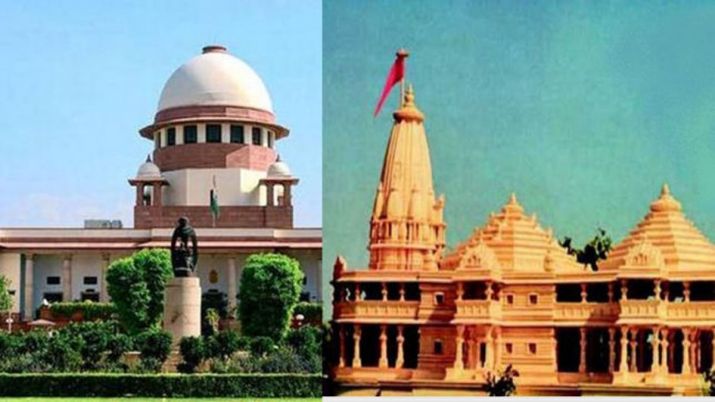The Uttar Pradesh Sunni Central Waqf Board (UPSCWB) has decided that it will not go in review against the historic Ayodhya verdict that has decided the 134-year long Ram Janmabhoomi dispute, giving the entire 2.77 acre-disputed site to the Hindus and also allotting five acres of alternate land to the Muslims for construction of a mosque. The UPSCWB Chairman, Zufar Faruqui said, “We welcome and humbly accept the verdict of the Honourable Supreme Court. I want to make it clear that UPSCWB will not go in for any review of the Apex Court’s order or file any curative petition. Hence, any statement in this regard, by any individual, lawyer or organisation, which mentions that UPSCWB will go for a review is not in our line.”
The decision by the Sunni Waqf Board not to go in review comes as a surprise, given that soon after the pronouncement of the verdict, the Sunni Waqf Board counsel, Zafaryab Jilani had said, “We respect the judgment but we are not satisfied. The judgment is not as per our expectations. After today’s order, it looks we will file a review petition. But a final decision will be taken only after consultation with our legal team.” However, later on, Jilani clarified that the press conference was organised by the All India Muslim Personal Law Board (AIMPLB). Thus, he had acted as the secretary of the AIMPLB and not as the Sunni Waqf Board counsel.
The All India Muslim Personal Law Board (AIMPLB) has however made it clear that it is considering going in a review. AIMPLB Executive Member, Kamal Farooqui said, “This judgment is based on faith, not facts. The apex court used Article 142, which gives it special powers. We did not demand land for land. But you gave us five acres of land in exchange for 67 acres.” AIMIM chief Asaduddin Owaisi has also expressed dissatisfaction with the Supreme Court verdict, in a rather cryptic and contemptuous manner.
The argument of those Muslim bodies that are looking for filing a review petition against the Ayodhya verdict, is based on a misconception that the judgment is based on faith, not facts. However, what they have failed to understand is that the Supreme Court has appreciated the evidence produced before it by both sides. On a proper appraisal of the matter before it, the Court arrived at the verdict. Where does the question of the Court passing the verdict on faith, not facts come from? This is something that none of these bodies has been able to elaborate.
Moreover, the dissatisfaction that these bodies have expressed against the allotment of alternate land also defies all logic. The Supreme Court allotted alternate land while observing that a wrong was committed due to Babri Masjid demolition, which ought to be remedied. After all, it is a basic legal principle that where there is a right, there is a remedy. It is for this reason that the Court resorted to Article 142 of the Constitution, to do complete justice between the parties. This is not a contradiction as those desirous of seeking review against the apex court verdict are claiming it to be. Merely because the Supreme Court remedied the wrong committed by the demolition of Babri Masjid does not mean that the Muslim side had a better title to the disputed site.
While the other Muslim bodies are planning to go in review, the Sunni Waqf Board has already spoken about the issue of selecting the five-acres land parcel allotted by the Ayodhya verdict. The UPSCWB Chairman, Zufar Faruqui said, “We welcome and respect the decision given by the Supreme Court. We will consult with the Board members about where to take the land and then decided further on the issue.”
The Muslim parties therefore seem to be divided post the historic Ayodhya verdict. The stance of the Sunni Waqf Board also sets a very good precedent. The Supreme Court judgment really addresses and decides all points of conflicts in the Ayodhya disputes in an effective and conclusive manner. Now, any attempt to institute more proceedings would be nothing more than a futile exercise elongating the judicial process unnecessarily. The stance of the Sunni Waqf Board brings a sense of closure to the 491-year old dispute. Moreover, AIMPLB and other Muslim bodies that are speaking in favour of filing a review petition don’t really seem to be able to appreciate the true essence and content of the landmark judgment. It is of no use to go in review only in the heat of the moment without understanding the real nature of the verdict. One hopes that ultimately the stance taken by the Sunni Waqf Board prevails over the other Muslim bodies as well, and there is a cessation of unnecessary plans to go in review against the Ayodhya verdict.
